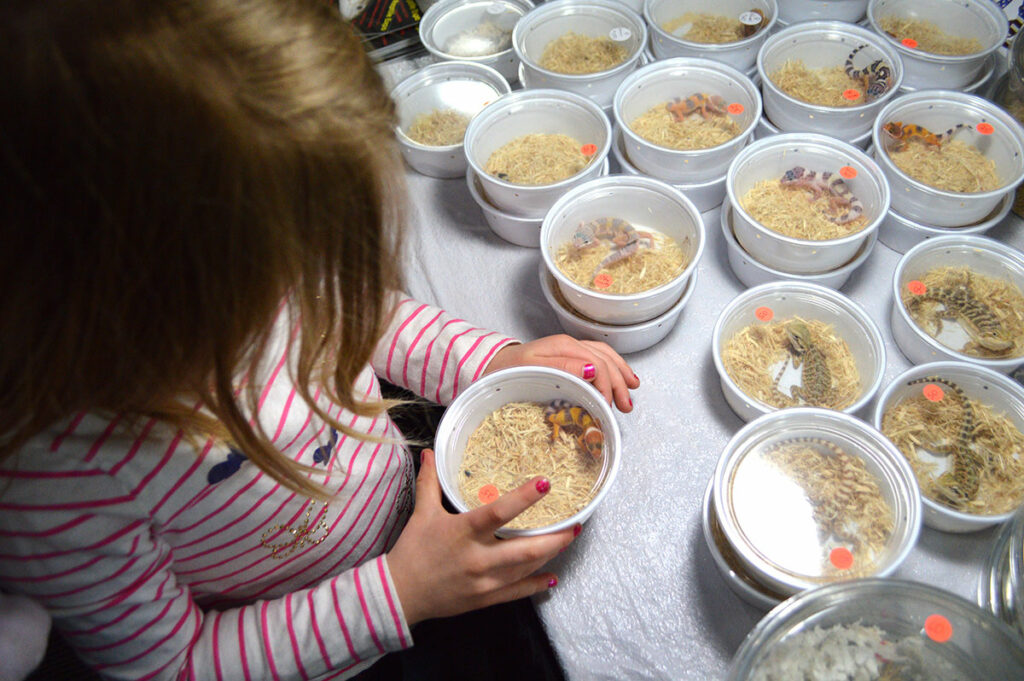
The city of Winnipeg has not responded to inquiries seeking explanations behind the massive proposals to ban many pets in the City. However, investigating the story of Winnipeg’s proposals to ban most aquarium life led us down a path that potentially exposes the greater agenda behind the City’s proposals, and the City itself is probably largely unaware. This is hardly the first time that anti-pet legislation or rules have been proposed. In fact, it happens rather routinely in the United States, which is one of the reasons USARK exists.
Regulations such as these are often proposed by well-intentioned individuals who are often uninformed or even deliberately misinformed, thus manipulated into proposing changes to laws and rules. It’s been going on for years, decades even. All pet owners are faced with a growing legion of anti-pet animal organizations that push false information as fact, and attempt to paint false narratives to push an agenda on the uninformed, often through legislation as we’re seeing here.
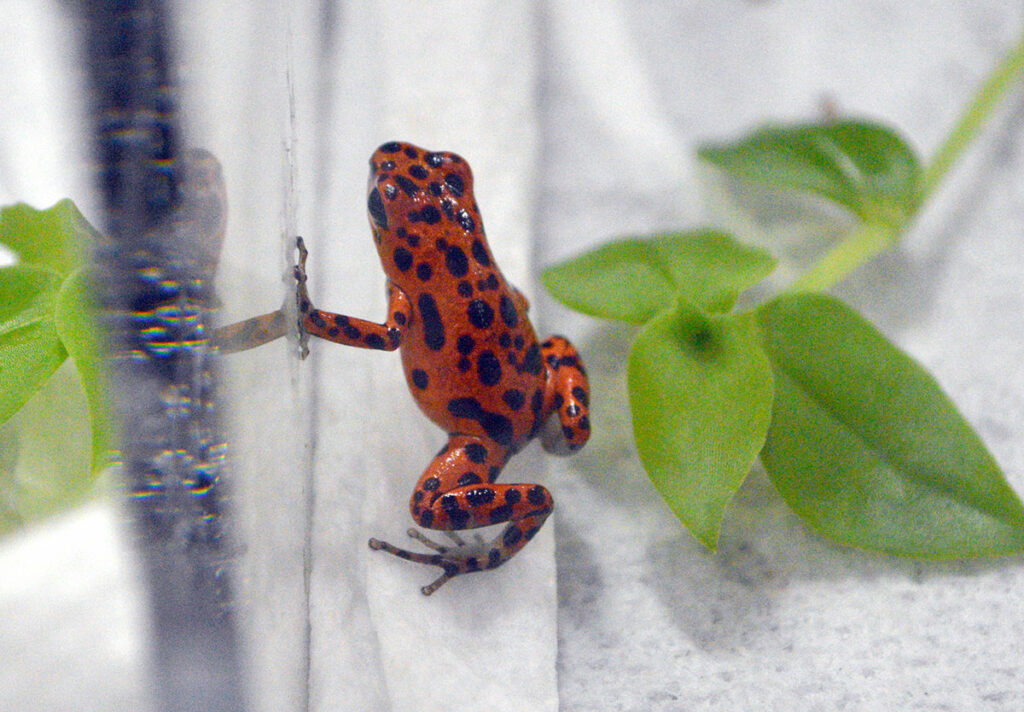
Pet owners familiar with the care and husbandry of things such as reptiles or fish are often quick to catch the mischaracterizations and false information being put out by anti-pet organizations, but the aquarium hobby, in particular, lacks the lobbying power necessary to fight back on all fronts.
The Depths of Misinformation in Winnipeg
It is particularly noteworthy that the Ball Python is a modestly-sized constrictor that is likely the most popular pet snake in the modern reptile hobby. It is now highly domesticated and extremely well-suited to captivity, yet prohibited under Winnipeg’s proposed rules. It is clear that the people drafting these rules are not getting their information from the experts in their fields, but from organizations with a clear, unapologetic anti-pet agenda.
While it remains unclear how Winnipeg’s proposed local rules came about, the NGO World Animal Protection (WAP) may be where some of this stems from, whether indirectly through their public messaging or by more direct local lobbying.
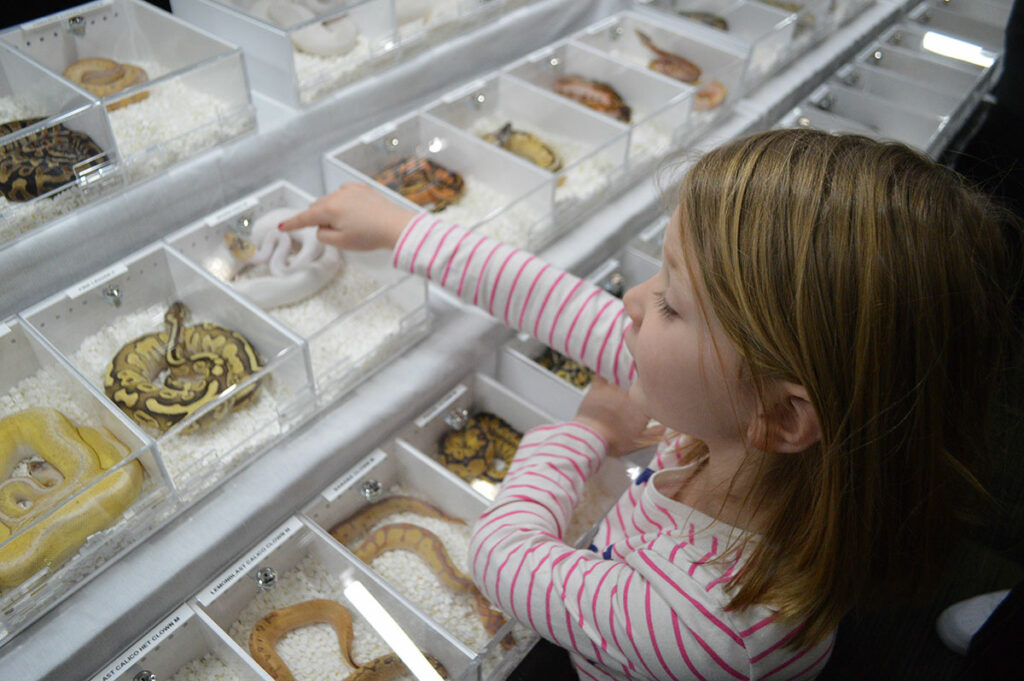
What follows is all tangential to any discussion of aquarium fishes, but it is illustrative of how something as benign and ubiquitous as a Ball Python, Python regius, can be proposed to be outlawed by a local government, which is what will happen in Winnipeg if the proposed rules are enacted.
The Telltale Citations
Winnipeg’s proposal includes and highlights a vocal condemnation of the keeping of Ball Pythons. The documentation cites a video by World Animal Protection, “Ball pythons are wild animals. Not Pets.“, claiming that the U.S. is a “global hotspot” for the “exotic pet industry”, all while showing footage of tigers behind bars. Apparently, Ball Pythons are comparable to tigers.
The video and its uncredited “investigator” (later found to be environmental photojournalist Aaron Gekowski) attempt, repeatedly, to connect the Ball Python hobby and trade with suffering, wildlife trafficking, and zoonotic disease. They go to great lengths to find anyone who will say anything that can remotely support their premise, which is flimflam at best. Yet, it is easy to see how someone can be unwittingly drawn in if this highly biased attempt at persuasion represents the only information they are given.
Examining Ball Python Propaganda
As the video starts, WAP representatives attend what appears to be a relatively recent pre-pandemic regional reptile exposition in Memphis, Tennessee. WAP confirms that Ball Pythons dominate the offerings at this event.
WAP, failing to understand—or purposely overlooking—the basic biology of a snake species like the Ball Python, denounces the conditions at this temporary event, which they call a “grocery store for reptiles,” citing a lack of “food or water” being available to the snakes on display. (Depending on their age, Ball Pythons feeding recommendations range from twice per week to as little as once per month. Healthy Ball Pythons can go without water for several days suffering no ill-effect, although general husbandry recommendations do suggest routine access to clean water.)
WAP also suggests that the snakes are not being allowed to “display their natural instincts”, they are unable to “explore”, and they don’t have “the proper enrichment.”
Despite the overwhelming number of captive-bred, highly domesticated Ball Pythons being offered, WAP suggests that the trade is still heavily reliant on wild-caught Ball Pythons. (In fact, there were probably few or no wild-caught Ball Pythons actually at the event based on what is typically seen at similar events.)
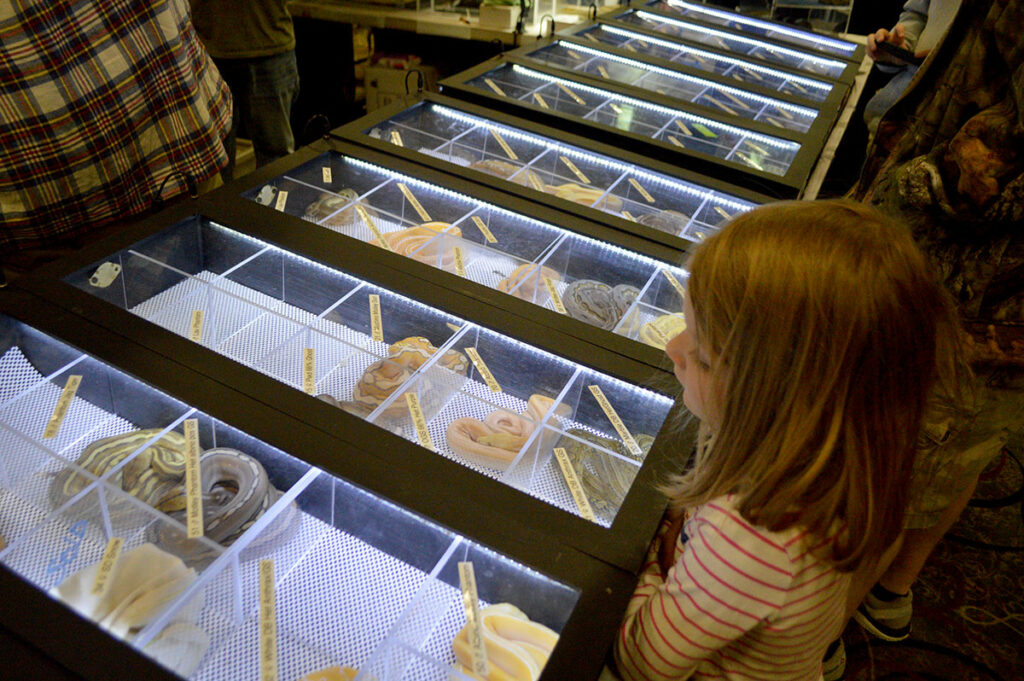
Visiting a small, private snake breeder in the Czech Republic, the lead WAP investigator openly admits to making an unqualified judgment, saying “I’m certainly no expert in this area, but I don’t think it’s too much to say that these snakes definitely don’t have enough room.”
WAP’s team travels to the West-African country of Benin to visit a Ball Python Temple where the snakes are revered in Voodoo practices. Viewers meet a Ball Python “priest” denouncing the sale of a Ball Python, the “selling of a deity.” Then, WAP visits a market offering an endless array of dried animals for voodoo practices, completely unrelated to the pet trade, but WAP still tries to conflate the two.
“It still wasn’t clear who was supplying these animals to the exotic pet industry. Desperate to find a new lead, I went online to get some answers,” says the host, and then the story turns to WAP’s own research.
From there, the story takes you to Ghana and describes government-sanctioned legal snake ranching operations that are in place to supply the Ball Pythons, which are then legally exported with CITES documentation to the world. The investigator visits a rancher who has four (yes, only 4) Ball Pythons on hand, which come from licensed trappers.
The host then travels with a small hunting party, they find a single wild ball python, and from there the investigator suggests that these wild ball pythons can be sold by the exporters for as much as $1000, perhaps to paint the picture of some highly lucrative illicit trade that should be summarily condemned. (A quick check of online retailers in the US at this time shows a limited number of “African-import” Ball Pythons are available, but prices range wildly and many are much closer to $100 to $250, retail, which suggests that snake rangers probably make far less than that per snake)
WAP’s Global Head of Campaigns, Cassandra Koenen, concludes this narrative, stating, “I believe that wild animals belong in the wild. These animals are not domesticated, and there is no environment that we can create for them, even with our best intentions, even with the best care possible, that would allow them to live the life that they are naturally born to live.”
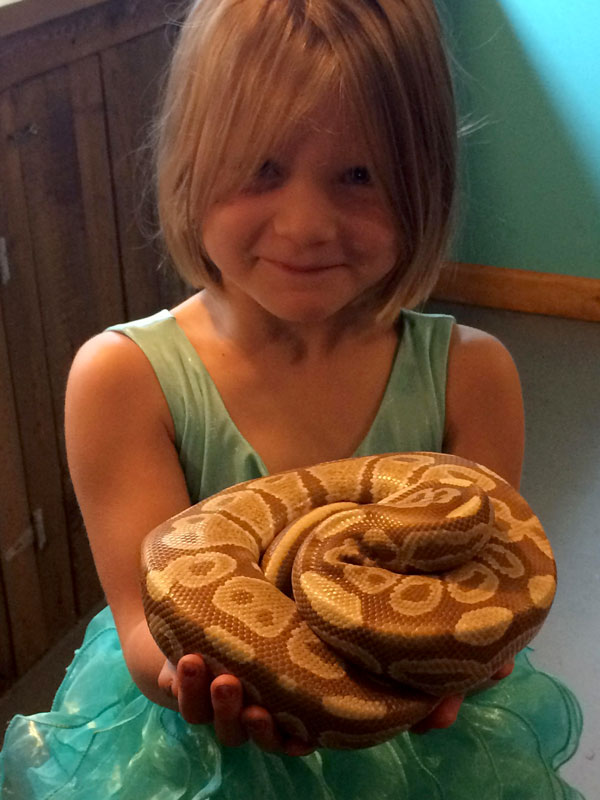
As the credits start to roll, so do more libelous claims against the Ball Python and its trade, “The genetic manipulation of ball pythons for new ‘morphs’ creates permanent, debilitating abnormalities. Wildlife markets and wild animal ranches are known to harbor new diseases, such as coronavirus (COVID-19).” The ultimate stated goal of WAP is to “stop the trading of exotic animals as pets worldwide.”
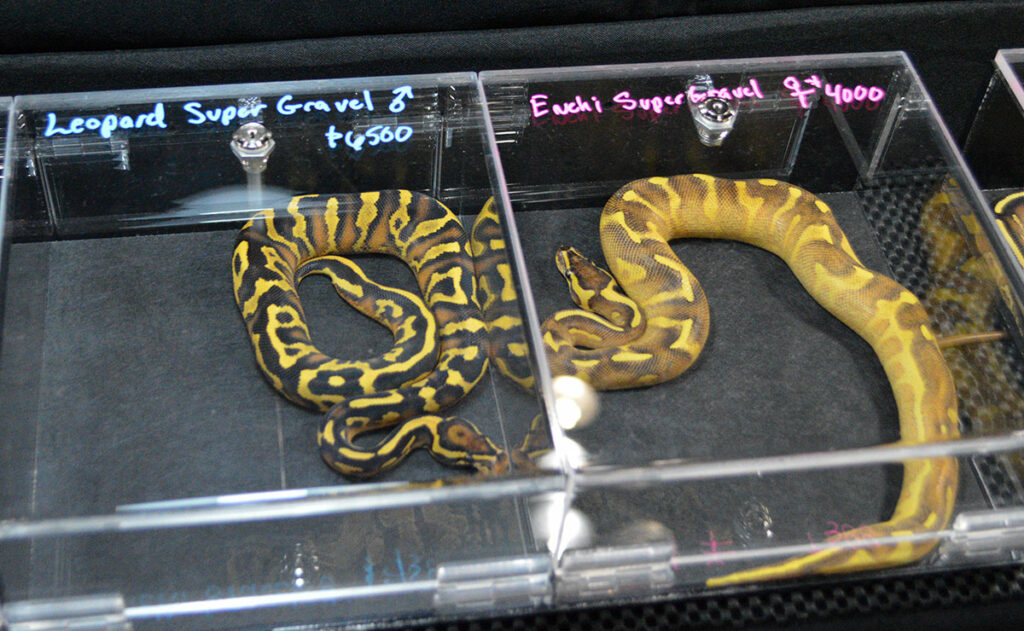
Further Thinking
Around the same time as the release of this video from WAP, a National Geographic article, “Ball python exports raise concerns as demand for the popular pet grows“, by Rachel Bale, showcases photography by “Aaron Gekoski/World Animal Protection.”
WAP’s messaging is clearly able to reach a vast audience, and as a result, WAP becomes the “expert in the room” on all things Ball Python, based entirely on being the loudest voice, even when their program’s host freely admits that he is “certainly no expert in this area.”
Winnipeg, it seems, has been sucked into this misleading narrative, and law-abiding residents may be the actual victims.
Make It Up, See If It Sticks?
For Winnipeg to propose banning a popular pet, hanging their hat on arguments such as the poaching of wild animals, one must ask if Winnipeg looked into any data.
For example, within the WAP video, you’ll catch an occasional mention of CITES, which regulates the international trade in Ball Pythons, whether wild-caught or captive-bred. From the CITES Trade Database, for all of 2020, the entirety of Canada imported just 68 Ball Pythons, all captive-bred, all originating from Germany and the Netherlands (the Ball Python is native to central and western Africa). This is entirely legal trade; this is not poaching or “wildlife trafficking”, the latest buzzword that animal rights activists use to conflate legitimate trade with illicit trade, blurring the distinction in the minds of the public and lawmakers.
In the interest of providing a more balanced understanding, prior to the pandemic, we’ll also note that 2019 saw 55 captive-bred and 647 ranched specimens imported to Canada, and 2018 saw 152 captive-bred and 103 ranched imported to Canada (legal, state-sanctioned ranching, when properly conducted, is considered a sustainable method of harvest, holding wild broodstock to collect eggs, then returning broodstock to the wild, along with a portion of their progeny).
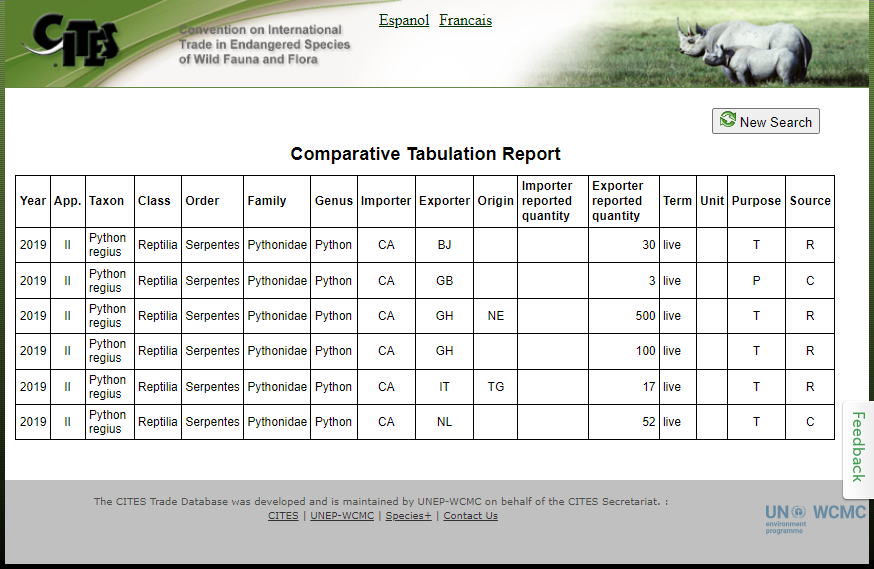
Thus, in the past three years, only captive-bred and ranched Ball Pythons have entered the country of Canada, per CITES trade data. While it doesn’t preclude the possibility of black market trade, it is noteworthy that there are no seized animals in the recent CITES data, which is sometimes seen in other searches.
In a country of over 37.7 million people, the actual CITES data doesn’t make any case for a massive trade in poached Ball Pythons arriving in the City of Winnipeg that must be shut down. We are left with only the arguments of poor, “depressed” snakes unable to “express themselves,” at least according to what WAP would have its audience believe.
Winnipeg’s Real-Time Debate is a Cautionary Tale
Keepers of “exotic animals” take note; while this is all just being “proposed” in Winnipeg, and this is just one organization and one example species, it could happen anywhere, at any time. These small-scale efforts to reduce or eliminate pet ownership, of all types, have been occurring and continue to occur around the globe. Small victories lead to bigger ones, so local situations like this must be taken seriously.
And to those of you in Winnipeg and Canada abroad, be sure to make your voices heard. Stakeholders (that means you, pet owners, and Winnipeg citizens) are invited to submit their comments before September 7th via email to RPObylaw@winnipeg.ca. We encourage you to speak calmly and with the authority of your own experience and, if applicable, expertise with these animals. Use rational arguments, use data.





Great article, glad you’re revealing the true intent of these extreme animal rights groups. Their sole purpose is to end ownership of animals. They don’t care about actual welfare issues. It’s important to keep lobbying the city to not allow any of these proposed changes based on collusion with Zoocheck and World Animal Protection.
Nicely written. Most importantly it highlights some of the tactics and strategies used by animal rights organizations to skew the facts. Such organizations have their place (and I support many if them), however many also resort to questionable practices to suit their particular agenda. As a long time aquarist, I can speak from experience on this hobby. I know nothing about Ball Pythons, the reptile hobby, etc. Nonetheless, city administrators/law makers should do their due diligence before passing any type of law or policy, including soliciting feedback from experts, as well as proponents and opponents. In this case, the wellbeing of an animal is in play along with the values of the city populace. Those aren’t always congruent.
I would suggest the aquarium trade advocates and others work with the City of Winnipeg and other governments to find compromises that will allow responsible owners to enjoy their pets and hobbies and prevent those animals from getting released into the wild. Many of our pet and hobby animals have been intentionally and inadvertently released and have become dangerous and expensive scourges in many habitats around the planet. We have to accept our roles in this.
Jim, I feel compelled to point out that we’re talking about Winnipeg, Manitoba, Canada. There is pretty much zero chance of these animals, mainly originating from tropical climates, being able to become “dangerous and expensive scourges” in this far northern region. The concern you express would be equivalent to suggesting that corals and clownfish could become invasive species in Lake Superior.